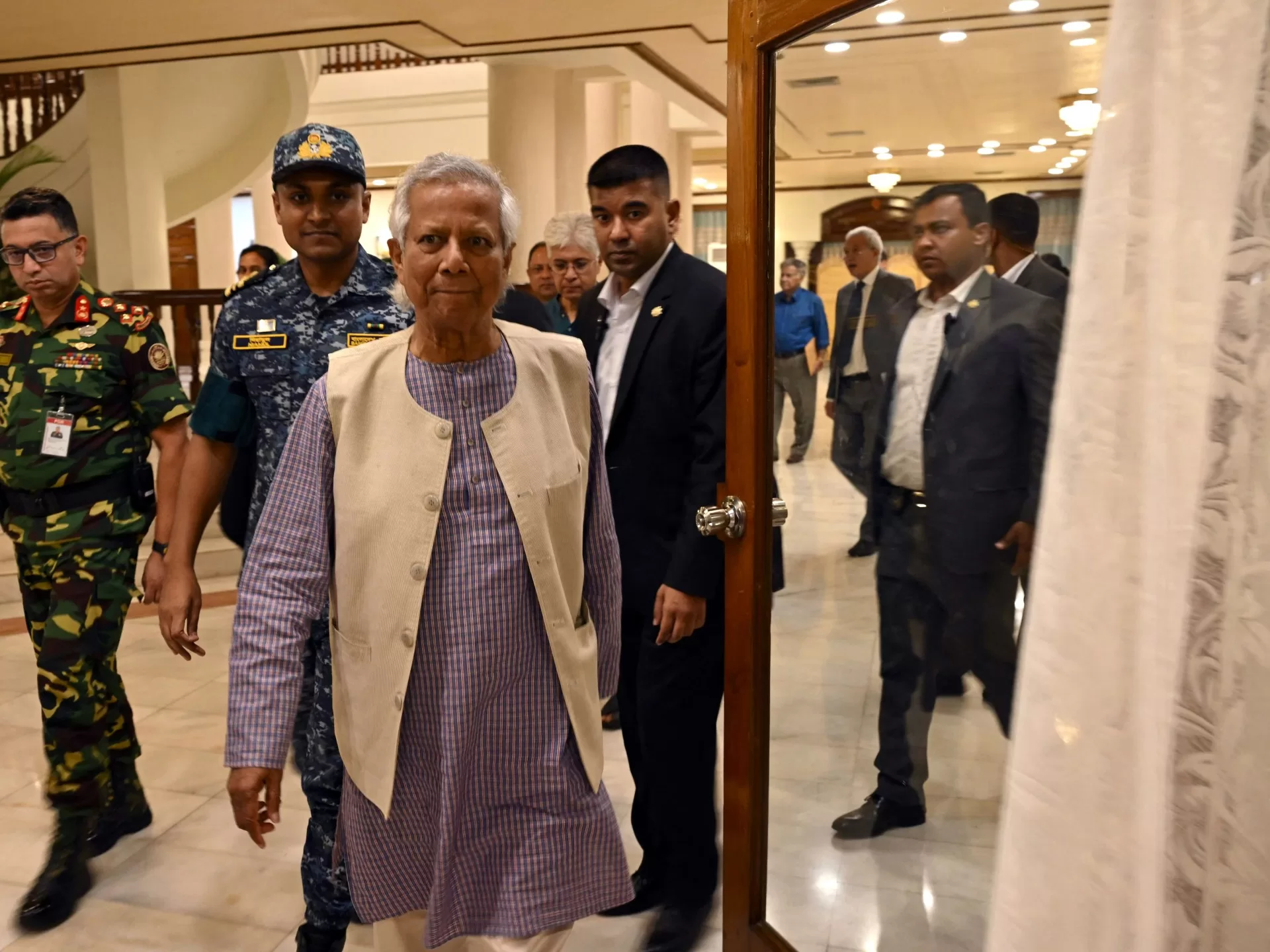Bangladesh’s interim prime minister has also pledged to maintain the country’s important garment industry.
Muhammad Yunus, the interim leader of Bangladesh, has delivered his first major government policy address in which he promised to support the Rohingya community seeking refuge in the country and maintain Bangladesh’s garment trade.
Setting out his priorities in front of diplomats and UN representatives on Sunday, Yunus pledged that his government “will continue to support the million-plus Rohingya people sheltered in Bangladesh”.
“We need the sustained efforts of the international community for Rohingya humanitarian operations and their eventual repatriation to their homeland, Myanmar, with safety, dignity and full rights,” he said.
Bangladesh is home to about one million Rohingya. Most of them fled neighbouring Myanmar in 2017 after a military crackdown now the subject of a genocide investigation by a United Nations court.
Earlier this month, medical charity Doctors without Borders, known by its French initials MSF, said that more Rohingya are arriving in Bangladesh from Myanmar with war-related injuries amid escalating conflict between the military and the rebel Arakan Army (AA) in western Rakhine State.
More than 40 percent of the injured were women and children, it added in a statement.
Yunus, an 84-year-old Nobel Peace Prize-winning economist, returned from Europe this month after he was picked by President Mohammed Shahabuddin to lead an interim government, fulfilling a key demand of the student protest leaders.
His predecessor Sheikh Hasina, 76, fled the country on August 5 by helicopter after 15 years in power, brought down by antigovernment protests.
The weeks of unrest and mass protests that toppled Hasina also saw widespread disruption to the country’s linchpin textile industry, with suppliers shifting orders out of the country.
“We won’t tolerate any attempt to disrupt the global clothing supply chain, in which we are a key player,” Yunus said.
Bangladesh’s 3,500 garment factories account for about 85 percent of its $55bn in annual exports.
In his policy address, Yunus also noted how over the past month, “hundreds of thousands of our valiant students and people rose up against the brutal dictatorship of Sheikh Hasina”, and pledged to investigate their deaths.
More than 450 people were killed between the start of a police crackdown on student protests and her ouster three weeks later.
“We want an impartial and internationally credible investigation into the massacre,” Yunus said on Sunday.
“We will provide whatever support the UN investigators need.”
A UN fact-finding mission is expected in Bangladesh soon to probe “atrocities” committed during the student-led protests.
Yunus has also committed to holding free and fair elections in the near future.
Yunus himself was convicted of violating labour laws during the previous administration, in what had been denounced as a politically motivated trial.
“The Sheikh Hasina dictatorship destroyed every institution of the country,” Yunus said.
He added that his administration would “make sincere efforts to promote national reconciliation”.
